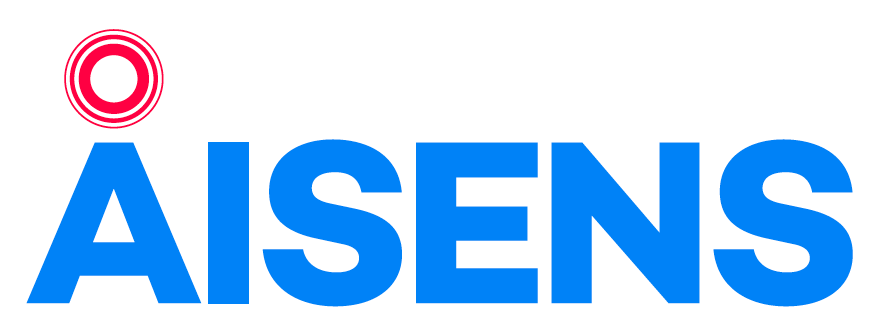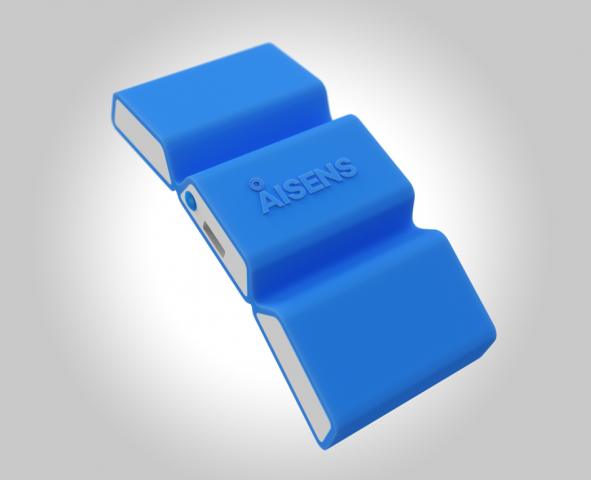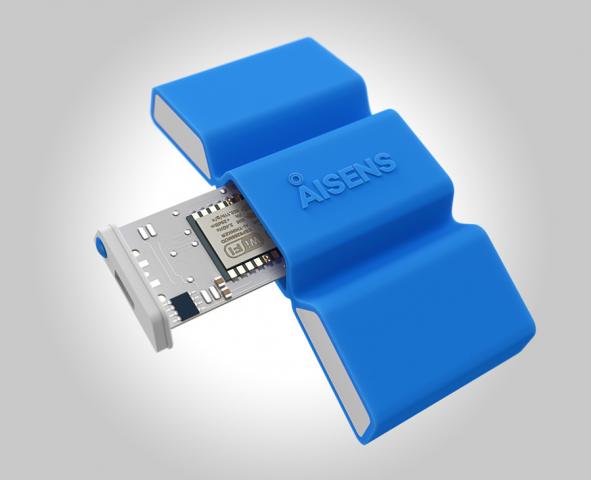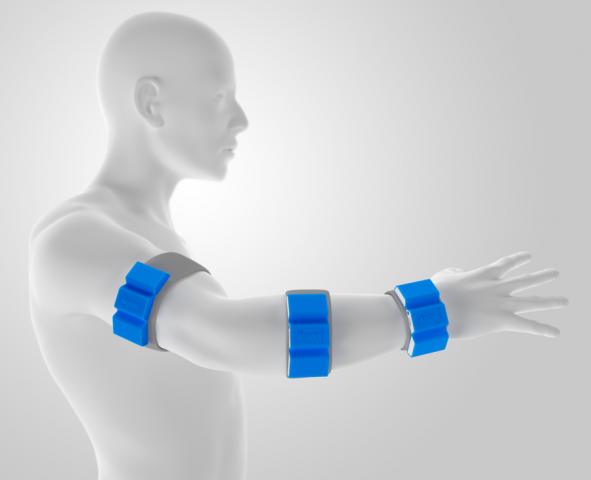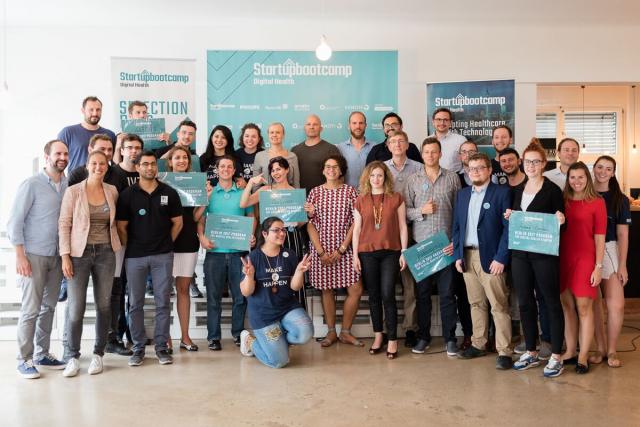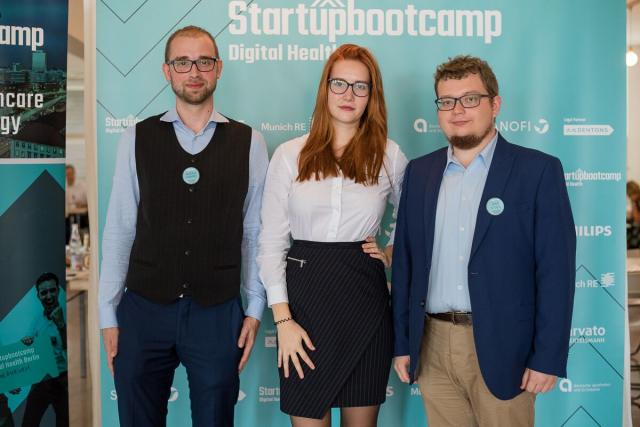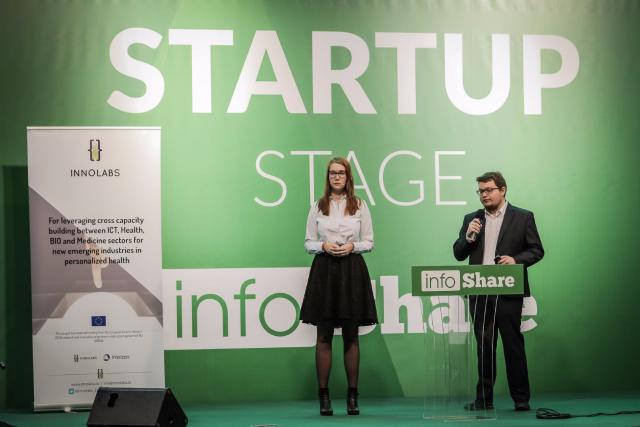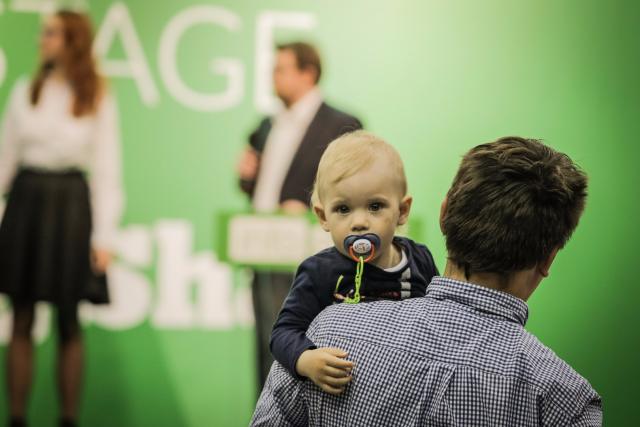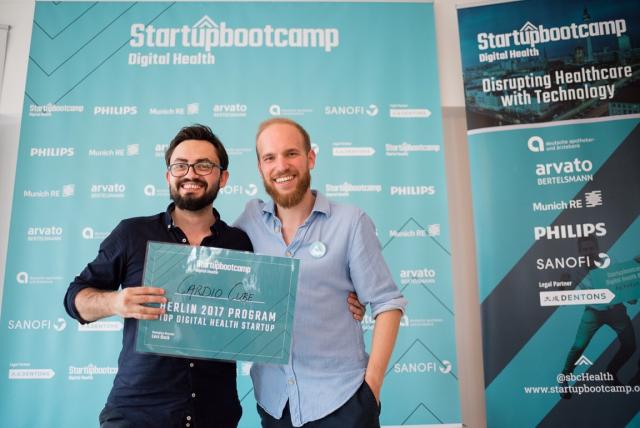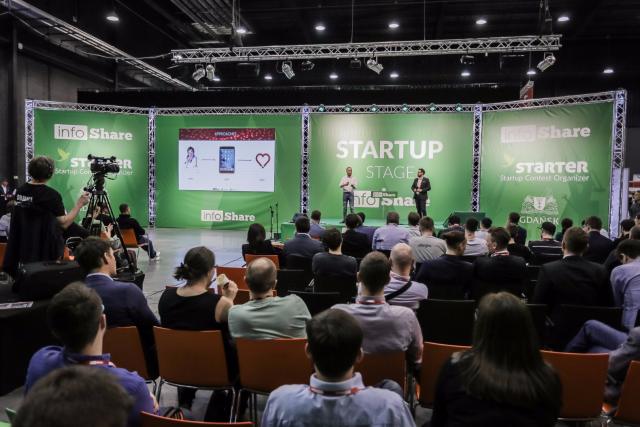3 Polish startups at Startupbootcamp Digital Health Berlin
On September 4th 2017 the Startupbootcamp accelerator in Berlin starts. 10 startups from Digital Health industry have been selected for this intense 3-month program from among 3000 companies from 60 countries. 3 of them are Polish. AISENS, Projekt Aurora and CardioCube – all took part in infoShare 2017. Let’s meet them.

Dr Jarek Gośliński, Piotr Owczarek and Adam Woźniak are the cofounders of AISENS. Once students at the Poznan University of Technology they started to cooperate in 2016. First of all they focused on creating a product for tele-rehabilitation – a solution for the problem of decreasing number of psychiotherapists in relation to the increasing number of patients. This problem is noticed in many European countries.
Ewa Siekierska, infoShare: You have been selected for Startupbootcamp accelerator – congratulations! What are your expectations?
Adam Woźniak: Frankly, we don’t know what to expect. We know for sure that we will have access to world-class international mentors and experts from Digital Health industry. We want to make use of this program to consult our plans for the business model in different European countries and to build a network of potential business partners and clients. It will be a great opportunity for our company to enter foreign markets.
iS: Let’s hear a few words about your product. What stage are you at now?
AW: Our sensors and mobile application enable rehabilitation in any place thanks to the presize measurement of patient’s movements. In order to use our sensors you just have to put them on your hand or leg or even the whole body. Next we connect to the sensors via the mobile app. After that the system is ready for work. While the patient exercises the sensors send very accurate data about the movements in real time thanks to wireless connection. This way the application can inform the patient if he exercises correctly.
The sensors are ready for mass production. The application is being refined. Soon we’ll be running tests with patients in 5-10 institutions. At the moment the sensors already have the CE certificate and after the tests we should obtain the medical certificate. By the end of 2017 we plan to establish long-standing and payable cooperation with 5-10 institutions in Poland and in Europe.
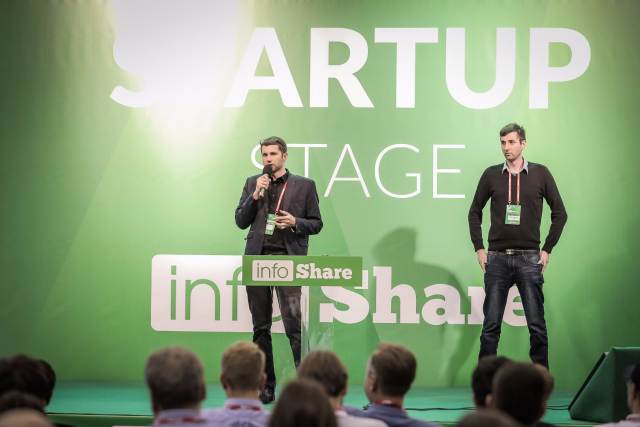

iS: What makes your solution unique?
AW: We have consulted our assumptions and development plans with tens of physiotherapists and specialists from hospitals and clinics from the very beginning. We want to offer a tool that supports therapy, not replaces it. Out proprietary technology constitutes of, among else, a positioning algorythm (a few years of scientific work), firmware based on the algorythm, proprietary hardware in the form of an electronic system, AI algorythms.
iS: What was the recruitment for Startupbootcamp like? What was your biggest challenge?
AW: After submitting the application we were one of 3000 projects. Then 70 projects were selected for Skype calls with the main manager of the accelerator. During the call we talked about our project, development vision and the plan for cooperation with SBC. Next we were selected as one of 20 projects to visit Selection Days in Berlin. There we had 20 sessions with more than 60 experts from the Digital Health industry who afterwards picked 10 best teams. Surely the biggest challenge was to answer all these difficult questions and to convince the experts that our company has a chance to emerge not only in Poland but also in Germany.
iS: What do you think about taking part in events for startups? Is it useful for getting known in the community and among investors?
AW: Obviously it helps show the company to the investors but you have to be prepared. We don’t refuse if we are invited to such an event because it’s one on the ways to build relations with potential business partners. However we remember that the most important thing is to show our product to as many physiotherapists as possible. It’s also valid to get their feedback. That is why we prefer events that are meant strictly for the medical industry.
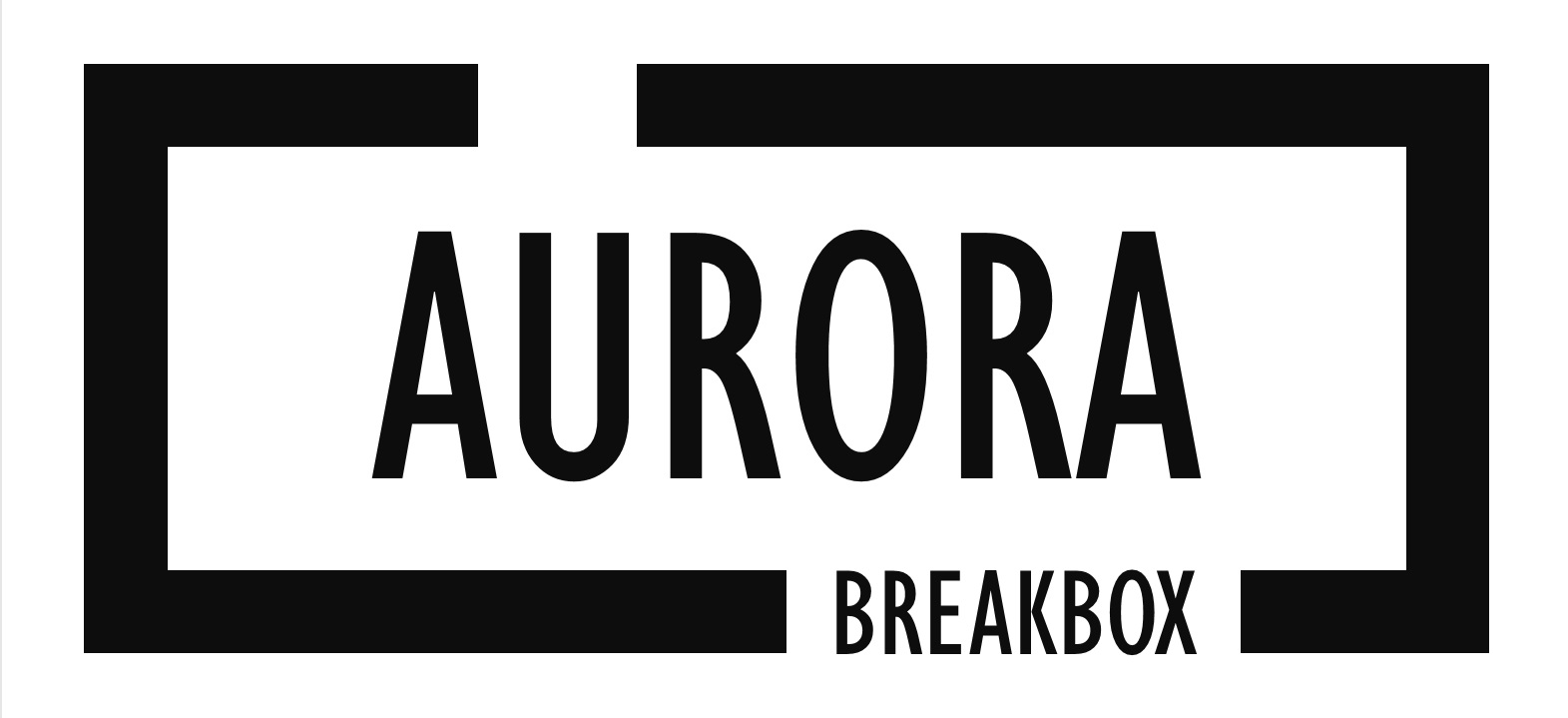
72 hours – this is how long it takes today to determine precisely which antibiotics will be most effective. During this time the patient’s condition can decline tragically, especially with children. The Aurora Project of BreakBox Lab aims at shortening this time to 6 hours. They also go to Berlin. We’re talking to Wojtek Giżowski and Olga Grudniak.
iS: Let’s start from the beginning. Were did you get the idea of Aurora?
Wojciech Giżowski: It was actually quite unexpected. A one-year old son of our business mentor, Kamil Borowski, was going through antibiotic therapy which wasn’t working because he got so called „broad spectrum” antibiotics. Kamil asked us: „Is there a quick and cheap way to determine exactly what antibiotics he should get?”. I asked our research specialist – Marcin Pitek – the same. Within two days he called me back saying that there wasn’t such a solution on the market but he has an idea how to create one. This way Project Aurora was born.
iS: What is your goal? What do you want to achieve?
WG: We want to create a quick, cheap and easy to use device to select effective antibiotics. We want to put it in the office of every family doctor and in hospitals where the time and precision mean life or death e.g. in paediatric departments.
iS: Who are your competitors? For sure you are not the only ones since the problem is widely known.
Olga Grudniak: The antibiotic resistance problem is getting more serious every day. Of course we have competitors. In 2014 Longitiude Prize selected creating a quick and cheap bacterial infection test to be the challenge for the next 5 years. You can win 10 mln GBP so it’s worth to compete. In Poland we have two competitors. There is also a French company that reduces time like us. Unfortunately the prize of their solution is too high to use it for every patient. We also compete with the UCLE University in USA. In this case the prize is lower but the time stays almost the same.
iS: We are very happy with your participance in Startupbootcamp. How is it going to help you?
OG: The German market is one of the most difficult to introduce innovation in healthcare. It is also crucial for us so we want to start cooperation with German companies and organizations from health industry. We also have to verify our business model – in this area Startupbootcamp will be very useful. Taking part in one of the best accelerators worldwide will reinforce the credibility of our project and team. Our team is quite young for such a complicated issue. Unfortunately it’s a barrier for many investors.
WG: It’s also a great opportunity for networking and meeting many interesting people. We will also get a chance to prepare our team for new business challenges like entering foreign markets.
iS: As infoShare organizers we are curious to know how you assess events like our conference. Is it worthwile to take part?
OG: In the case of Aurora startup events worked really well. First we presented the project during Bioinnovaion International Summit and it was our first success. Then we went to Venture Days where we got the support from KPMG, among others. We also gained contacts with other investors. Of course we couldn’t miss infoShare. There we took part in the Digital Health Hackathon contest. Thanks to that information about our project spread abroad. Another benefit was to meet foreign investors. This way we started talking to a VC from Berlin and an accelerator from Tenerife.
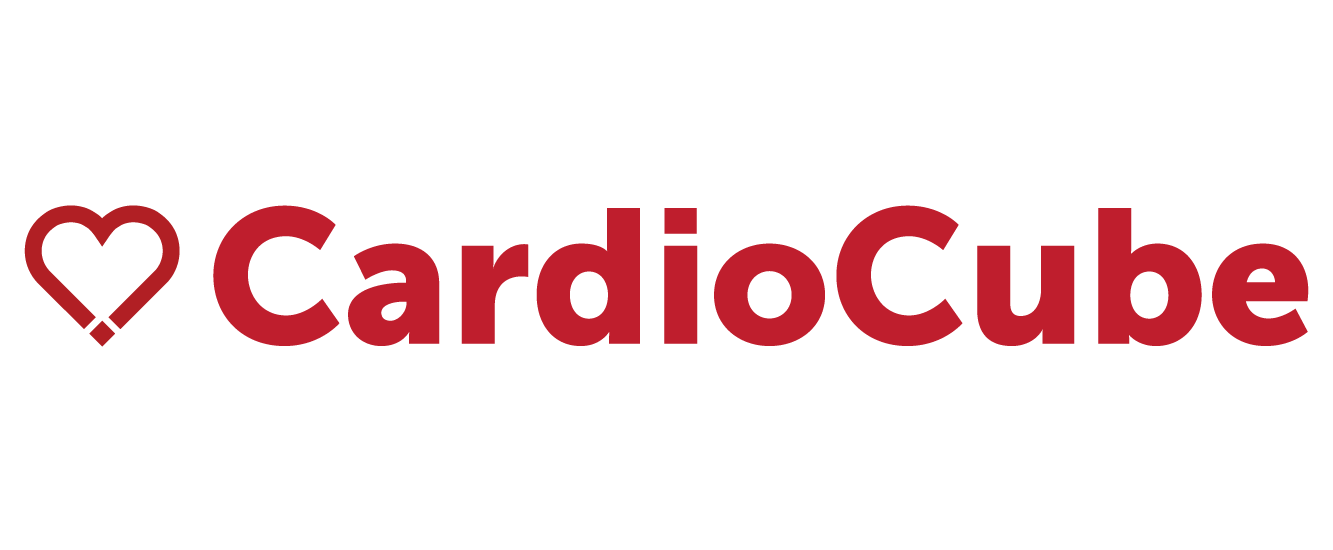
The third Polish company that will participate in Startupbootcamp is CardioCube. This team of professionals experienced in healthcare creates a solution that employs artificial intelligence in cardiology. They want to solve the problem of 30% heart failure patients returning to hospital due to home treatment complications and doctors having limited information about the treatment. Oskar Kiwic (CEO) and Tomasz Jadczyk (Chief Science Officer) from CardioCube will tell us more.
iS: What is CardioCube? Help us understand what the 6th medical sense is about :)
Oskar Kiwic: In order to understand how CardioCube works you have to imagine a patient that leaves the hospital after a long treatment. His doctor gives him a voice-first device (Amazon Echo, Google Home etc.) connected to CardioCube. He takes it home and from now on he can talk with the device just like with his cardiologist. The interaction goes both ways. The device can start a conversation to collect medical data or the patient can ask about different treatment issues. The information collected by the device is merged in the cloud with the patient’s hospital file and compared with similar clinical cases. The algorythms present ready to use treatment plan to the doctor which shortens the time needed for data analysis. This way we can remotely optimise the treatment according to accurate needs and clinical condition of the patient. This solution is a significant supplement of classical medical visits. Finally the system improves the patient’s safety, decreases the number of unplanned hospitalisations and at the same time reduces the cost by 75%.
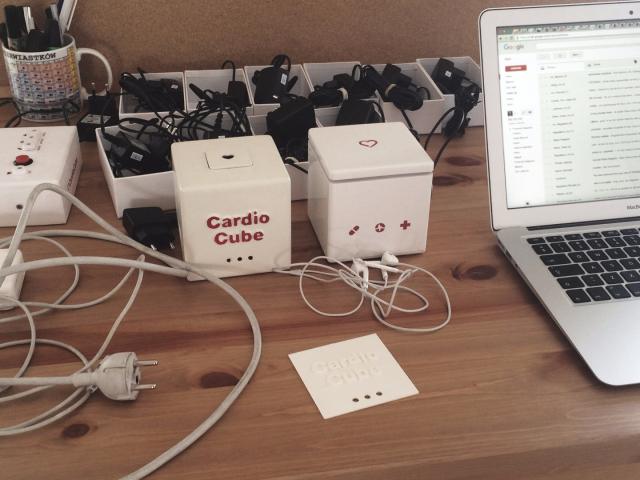

iS: Wow! This sounds incredible! It seems that you solve a problem that is really crucial both for the patients and the doctors.
OK: The problem of readmissions is common in cardiology. An average hospital in the USA spends around 2 mln USD yearly on additional hospitalisations of heart failure patients, and the number of patients increase all the time. There are very few solutions on the market, some of which are inept. This is why we started to look for a different communication way based on conversational AI.
iS: How will you convince the medical community to use your product? Terms like artificial intelligence can cause concern among people who are not familiar with technology.
Tomasz Jadczyk: Thanks to the professional medical experience of our team members we understand exactly the path from the research concept through product development, its clinical validation and introducing it into practice. At the moment medicine is based on evidence. On one hand the medical community is conservative but it’s also aware that the evolution of technology conditions the progress of medicine. We can see it every day.
iS: We know that developing a digital health product is time- and money-consuming. How will Startupbootcamp help you?
OK: The main value for us will be the chance to gather the whole team in one place for 3 months without any outside dispersive issues. Another great value is the network of SBC mentors and partners who started helping us from the very selection stage. We had a lot of Skype calls with VCs and angels from Berlin. SBC brand is widely known and it opens many doors.
iS: One more question – is it worthwile to find time and take part in startup events?
TJ: You cannot do anything without effective communication with the outside world. During one day of infoShare we met 3 investors and talked with them for a few months afterwords. Thanks to our participation in Digital Health Hackathon we were invited to apply for SBC. So, there are some startup events that in three days give you results which you would achieve in three months by yourself.
iS: We keep our fingers crossed for Aisens, Project Aurora and CardioCube – make the best of your time at Startupbootcamp. We hope to see their solutions in every day use soon.
Tags:
LATEST NEWS
Od czego zależy sukces wdrożeń AI? - polskie i amerykańskie trendy w branży tech 24.10.2025
Five highlights from EU Space Days 2025 13.06.2025
🤝 Networking i zabawa na Infoshare 2025 30.04.2025
⭐ Spotkaj liderów innowacji | Keynote Speakers 23.04.2025
🎸 Zagraj na Great Networking Party | Call for Bands 16.04.2025
🏆 Gdańsk Startup Award – Twoja Szansa na Sukces! 09.04.2025


